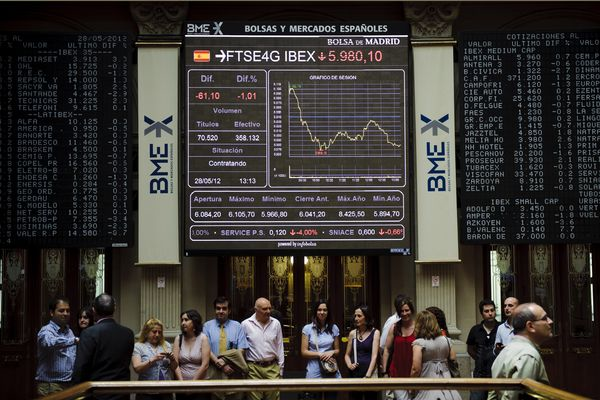
Spain’s borrowing costs have risen to another euro-era record, with lenders demanding a higher interest rate.
The yield on benchmark 10-year bonds hit 7% on Thursday morning, a level which many analysts believe is unsustainable in the long term.
It came as Moody’s cut Spain’s credit rating to one notch above “junk” and ahead of an Italian bond auction.
At the weekend, Spain agreed a 100 billion-euro ($126 billion) bailout of its banks by fellow eurozone countries.
It was hoped that the bailout would help calm fears in the financial markets about the strength of Spain’s banks and ease Madrid’s borrowing costs.

However, Moody’s said the eurozone plan to help Spain’s banks would increase the country’s debt burden.
Moody’s cut Spain’s rating from A3 to Baa3 and said it could reduce this further within the next three months.
If Spain is cut to junk, some index-tracking investors would be forced to sell the country’s bonds. This would add to upward pressure on yields and push Spain’s financing costs higher, heightening the risk that the country will need a full-blown bailout.
The difference in the rate between Spanish and safe-haven German 10-year bonds widened to a high of 5.44 percentage points.
“The risk of losing investment grade pressured the differential this morning and left it at historic highs,” analysts at Spanish brokerage Renta 4 said in a market report.
Italy will test market sentiment on Thursday with the sale of up to 4.5 billion Euros of bonds.
On Wednesday, Moody’s also cut its credit rating for Cyprus by two notches, from Ba1 to Ba3. Cypriot banks are heavily exposed to the troubled Greek banking system.
However, it is unclear whether the Cypriot government will seek a loan from its European partners or will instead turn to Russia, who already provided it with a 2.5 billion-euro loan in December.